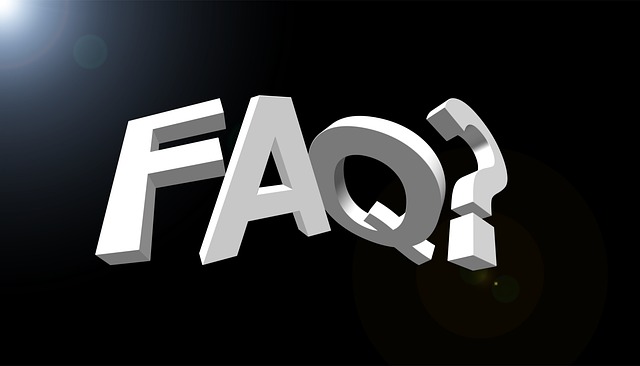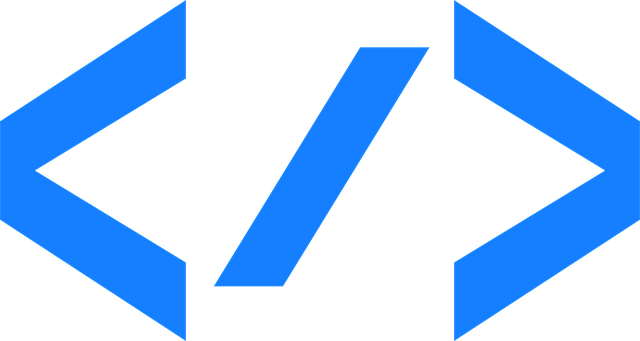The FAQ JSON-LD Code is a structured data format that enhances online content and user experience by allowing search engines to display FAQs in rich, interactive snippets on SERPs. This boosts visibility, attracts users with concise information, and increases click-through rates. Implementing the code involves structuring FAQs in a JSON object, integrating it into HTML, and verifying accuracy. Success is measured through CTR, average session duration, and bounce rates, optimized using Accordion Schema SEO. Accurate coding, dynamic content layout, user-aligned content, and natural keyword integration maximize benefits for improved engagement and conversions.
Adding the FAQPage schema to your website’s content is a powerful strategy to enhance user engagement and boost search engine visibility. This schema, represented by FAQ JSON-LD code, enables rich FAQ results on search engines, providing users with direct access to frequently asked questions and answers. By implementing this structure, you not only improve the user experience but also increase your site’s chances of securing valuable real estate in SERPs. Discover how to optimize your content with our comprehensive guide, covering everything from schema benefits to advanced tips for maximizing its impact.
- Understanding FAQPage Schema and Its Benefits
- Implementing FAQ JSON-LD Code: A Step-by-Step Guide
- Enhancing User Experience with Rich FAQ Results
- Boosting Search Engine Visibility: Utilizing SERP Real Estate
- Measuring Success: Tracking FAQ Page Performance
- Advanced Tips for Optimizing Your FAQ Schema
Understanding FAQPage Schema and Its Benefits

The FAQPage schema is a powerful tool for enhancing online content and user experience. It’s a structured data format, represented by the FAQ JSON-LD Code, that allows search engines to understand and display frequently asked questions (FAQs) in rich, interactive snippets on search engine results pages (SERPs). By implementing this schema type, website owners can expect several benefits.
This optimization technique not only improves user engagement by providing quick access to answers but also boosts visibility on SERPs. Search engines use the FAQ data to create engaging, informative snippets, attracting users with concise and relevant information. Additionally, adding FAQ Schema can lead to a better understanding of user intent, helping search algorithms serve more tailored results and potentially increasing click-through rates.
Implementing FAQ JSON-LD Code: A Step-by-Step Guide

Implementing the FAQ JSON-LD Code is a straightforward process that empowers your website to showcase rich FAQ results in search engine result pages (SERPs). This code, based on the Schema FAQPage Type, is a powerful tool to enhance user engagement and optimize your site’s visibility. Here’s a step-by-step guide:
1. Identify Your FAQs: Start by curating a list of frequently asked questions (FAQs) relevant to your content. Organize these questions in a structured format, typically as an accordion schema SEO, where each question can be expanded for answers.
2. Structure the Data: The JSON-LD code is written in JavaScript Object Notation (JSON). Create a JSON object with properties like `@context` (setting the context to “https://schema.org”), `@type` (specifying “FAQPage”), and an array of `question` and `answer` pairs for each FAQ.
3. Add the Code: Integrate the JSON-LD code snippet into your website’s HTML, usually within the “ section. Ensure it is encapsulated in `…`. The exact placement may vary depending on your website platform.
4. Test and Verify: Utilize Google’s Structured Data Testing Tool or similar services to validate your JSON-LD implementation. This tool checks the accuracy of your schema markup and provides insights for improvements.
Enhancing User Experience with Rich FAQ Results

Implementing the FAQPage schema is a powerful strategy to transform how users interact with your website’s content. By adopting this structured approach, you’re essentially offering a more engaging and intuitive user experience. When search engines crawl your site, they recognize the Schema FAQPage Type, enabling them to extract crucial information from your content using the provided FAQ JSON-LD Code. This extraction process leads to the display of rich FAQ results in search engine result pages (SERPs), enhancing visibility and click-through rates.
The benefits extend beyond improved search rankings; Rich FAQ Results provide users with instant access to answers, reducing the need for them to navigate through lengthy web pages. FAQ Snippet Optimization plays a vital role here, as it ensures that your content’s snippets are not only informative but also accurately represent the answers users seek. This precision in presentation encourages more interactions and keeps visitors engaged longer, ultimately boosting user satisfaction and driving higher conversion rates.
Boosting Search Engine Visibility: Utilizing SERP Real Estate

One of the most effective ways to boost search engine visibility and enhance user experience is by implementing the FAQ JSON-LD Code. This code allows search engines to understand and display your content in a rich, interactive format known as “rich FAQ results.” By structuring your FAQs using the Schema FAQPage Type, you can significantly improve your website’s visibility on Search Engine Results Pages (SERPs).
The use of FAQ Snippet Optimization ensures that when users see your enhanced listings, they are more likely to click through. This is because search engines can extract and display key information from your content in a structured, accordion-style layout, providing a better user experience. Thus, leveraging the Accordion Schema SEO technique not only improves engagement but also encourages higher click-through rates, ultimately driving more traffic to your website.
Measuring Success: Tracking FAQ Page Performance

Measuring success is a vital aspect of optimizing your FAQ page for enhanced user engagement and search engine visibility. By implementing the FAQ JSON-LD Code, you unlock valuable data tracking capabilities that allow you to gauge the performance of your FAQ content. This involves analyzing key metrics such as click-through rates (CTR), average session duration, and bounce rates.
FAQ Snippet Optimization plays a significant role here. Through careful structuring and utilization of Accordion Schema SEO, you can enhance the way your FAQs are displayed in search results. By monitoring user interactions with these rich snippets, you gain insights into the effectiveness of your FAQ page design and content strategy. This data-driven approach enables you to iteratively improve your FAQ page, ensuring it meets users’ information needs efficiently and captivates them long enough to foster higher engagement and potentially increase conversions.
Advanced Tips for Optimizing Your FAQ Schema

To maximize the benefits of implementing an FAQPage schema, consider these advanced optimization tips. Firstly, ensure your FAQ JSON-LD code is structured accurately according to Google’s guidelines. This involves using the Schema FAQPage Type with proper properties like `question` and `answer`, as well as `acceptedAnswer` for multiple-choice or rating questions. For a more interactive user experience, incorporate Accordion Schema SEO techniques to create a dynamic layout that allows users to expand and collapse question-answer pairs.
Additionally, optimize your content by aligning questions with user search intent. Each answer should be concise yet comprehensive, directly addressing the most pressing queries relevant to your audience. Utilize keywords naturally within both the `question` and `answer` fields, but avoid keyword stuffing. Remember, the goal is not only to impress search engines but also to provide genuine value to visitors, fostering higher engagement and satisfaction.
